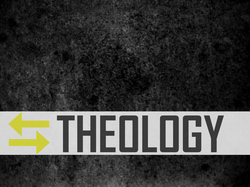
Recently there was a posting called "Pastors as Parrots?" by a poster named John Fry. The very short post raised a simple concern: do pastors lean on other to develop their own theological thought. Put another way, do pastors take time for their own theological reflection or do they copy others?
As a pastor and academic I find the question to be very poignant. First because I have a lot of pastor and academic friends and I wondered about their practice of theological reflection. Second, I pointed the figure at myself and asked if I was the parrot and leaned on others theological reflection and took it as my own. I think the answer, as normal, is mixed - sometimes we do and other times we don't.
All of that aside, the question that came to my mind is why - why is it that pastors may take a "short cut" in their own theological development? I didn't do any scientific study, but I did reflect on my own life and came up with some answers. My premise in their little post is that I believe one of the greatest responsibilities of a pastor is theological reflection:
- Pastors are too busy for theological reflection - The job of the pastor in todays culture is more like a CEO or a community organizer than a classical pastor (I'm not going to get into the good or bad of this, just stating what I see). The pastor's job is filled with stuff that takes away their time from theological reflection: building programs, outreach committees, BOD meetings, etc. I'm not saying that these are not the purview of the pastor, but what I am saying is that they take up too much of the pastor's time - and frankly, they are more valued than a pastor's theological reflection. We have to be careful to envision a "golden age" of pastor's when they had nothing to do but read the Bible and write; pastors have always had a lot to do. Fair enough, but I think all my pastor friends would agree that they struggle each week and month to reflect theologically on God's Word. It is a different time.
- Churches don't value a pastor's theological reflection - Blanket statements are often unhelpful and I realize that not all churches are the same. OK, but all you need to do is go to Christian magazines (Christianity Today, Outreach, etc) and you'll see what is valued by what is advertised to pastors - degrees in leadership are the most prominent ones that I see (not the only ones, but the most prominent ones). Further, churches are often looking for pastors who grow churches over pastors who are theologically mature. A quick perusal of Christian job sites will reveal this: "proven track record of growth," "experience in a 200-500 person church," "strong spiritual gift of evangelism." This is not to say that these churches don't want deep theological reflection, but according to their job descriptions it is not at the top of their list like maybe it should be (I would argue).
- Pastors aren't trained to reflect theologically - For me, a rich theological reflection is rich if there is a breadth of theological knowledge and experience. An individual must look beyond their own theological tradition and training in order to gain the complexity and truth that comes with theological reflection. One has to look beyond their own "pond" in order to discover something other than oneself. The question is - are pastors trained to do this? My experience is mixed - some institutions do and some do not. In my case, at one institution wide theological reading was encouraged and even required, while at another I was encouraged to keep my theological reading and training in line with the institution (which is not unusual, just stating what I ran into). The more reading I did, the more experience I had, the more I learned the broader and deeper my theological reflection. I got the greatest theological challenge from a grad school with nominal pastoral commitment than from a seminary where pastors are trained. Is my experience unique?
- Pastors feel pressure to "produce" like other pastors or be like other pastors - In my experience, the models for everyday pastors are the pastors that grow churches, speak at conferences, write books, and say controversial things - not deep theological thinkers. Do they exist? Yes - John Piper, John Stott, and J.I. Packer to name a few. But what I have noticed is that pastors model themselves after pastors they see in the magazines. Now this isn't new for culture, it is just a reflection of our culture - a microcosm if you will. There is a great amount of pressure to be like the men and ladies who are "out front" in the Christian subculture. The narrative goes like this - "if I'm going to be of value or be successful in ministry I need to be like X person" while the question probably should be, "am I prepared to theologically to lead my church in a Biblical fashion for the long term, am I ready to be like Jesus." It sounds trite I know, but I think that is the right question.
So this post is full of presuppositions and things that need to be defined further - I know that. The post is just a my reflection on pastors and their own theological development. Any comments are valued and would be welcome, especially from those who are in ministry.
Thanks!

 RSS Feed
RSS Feed